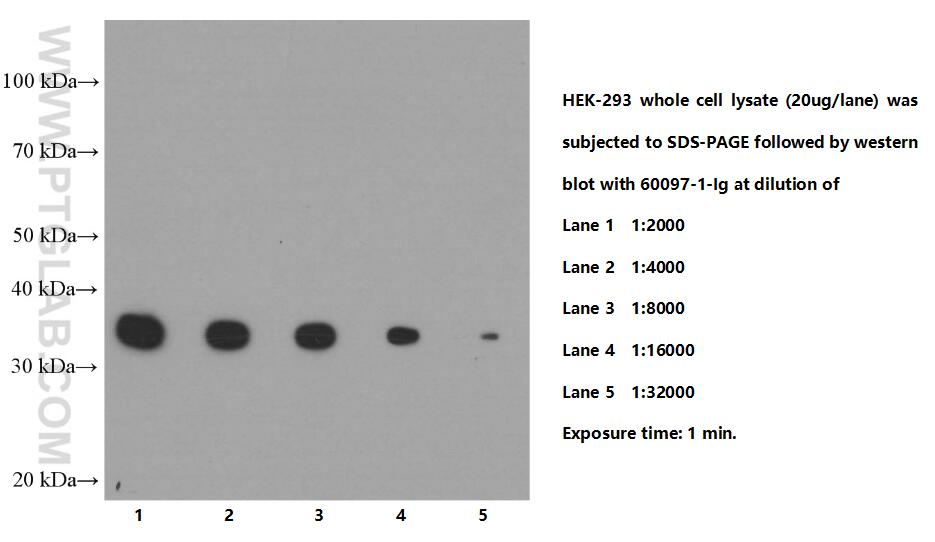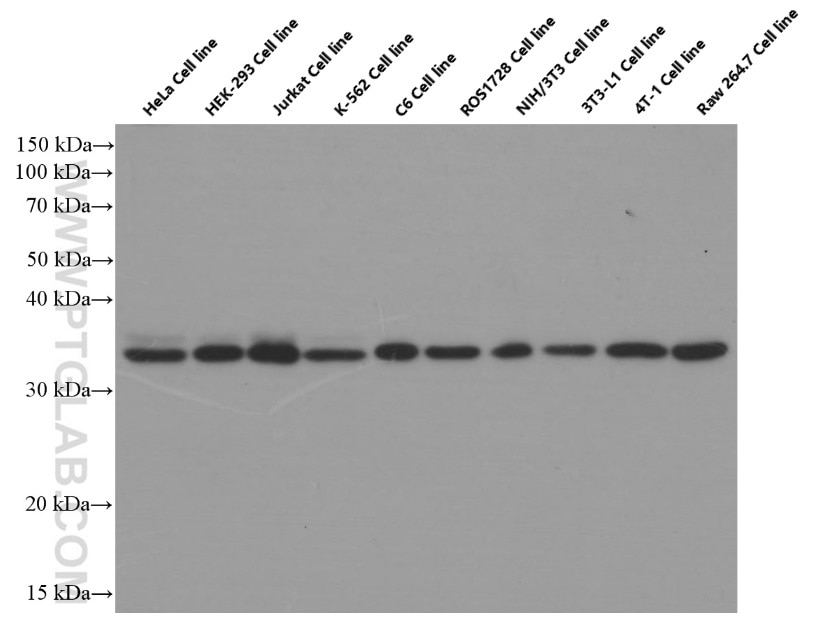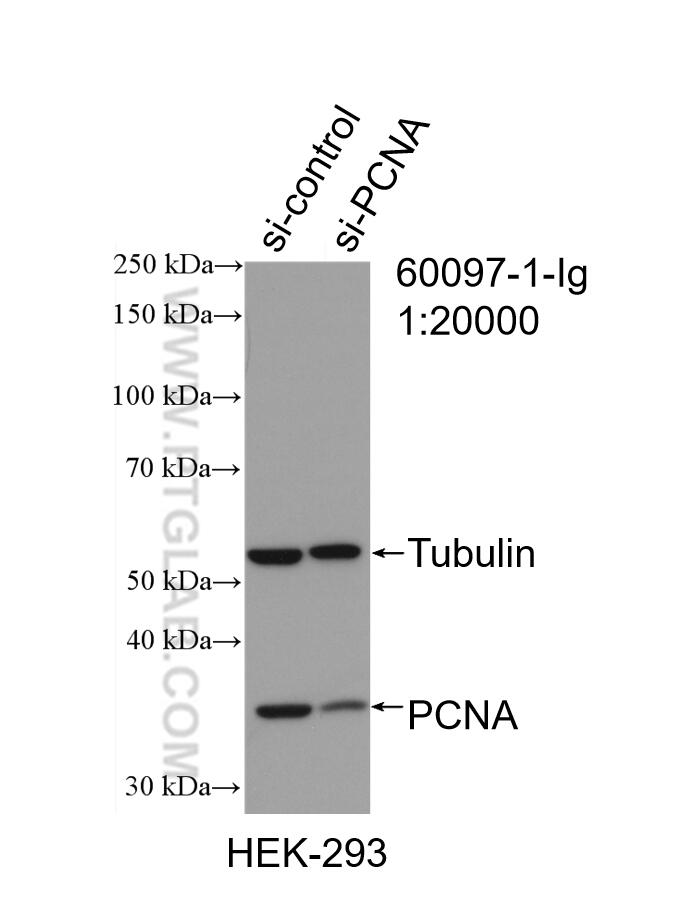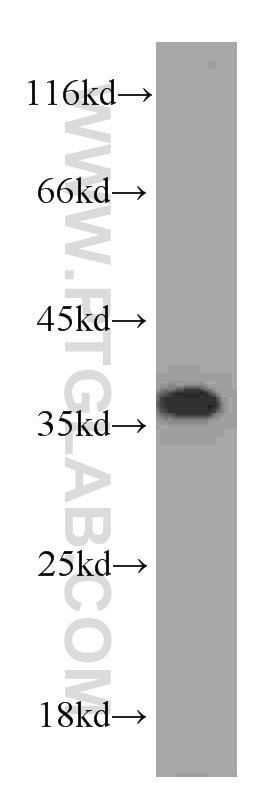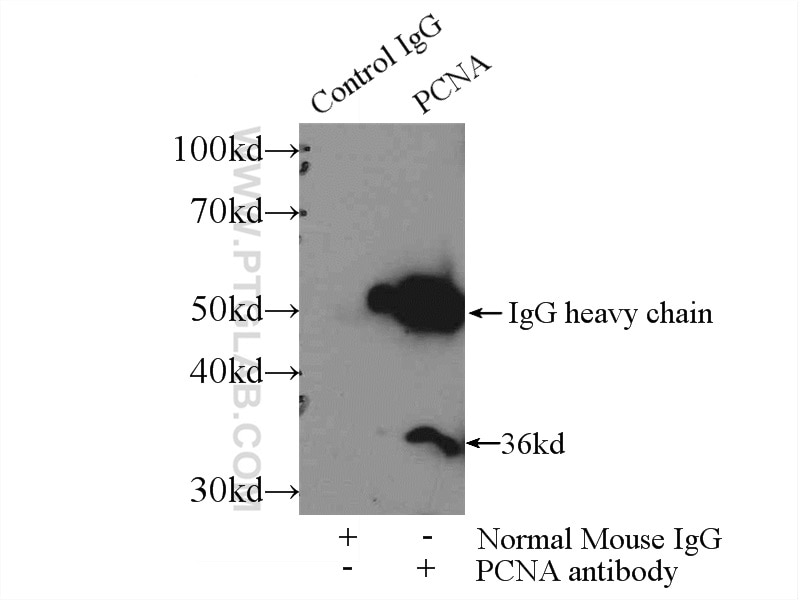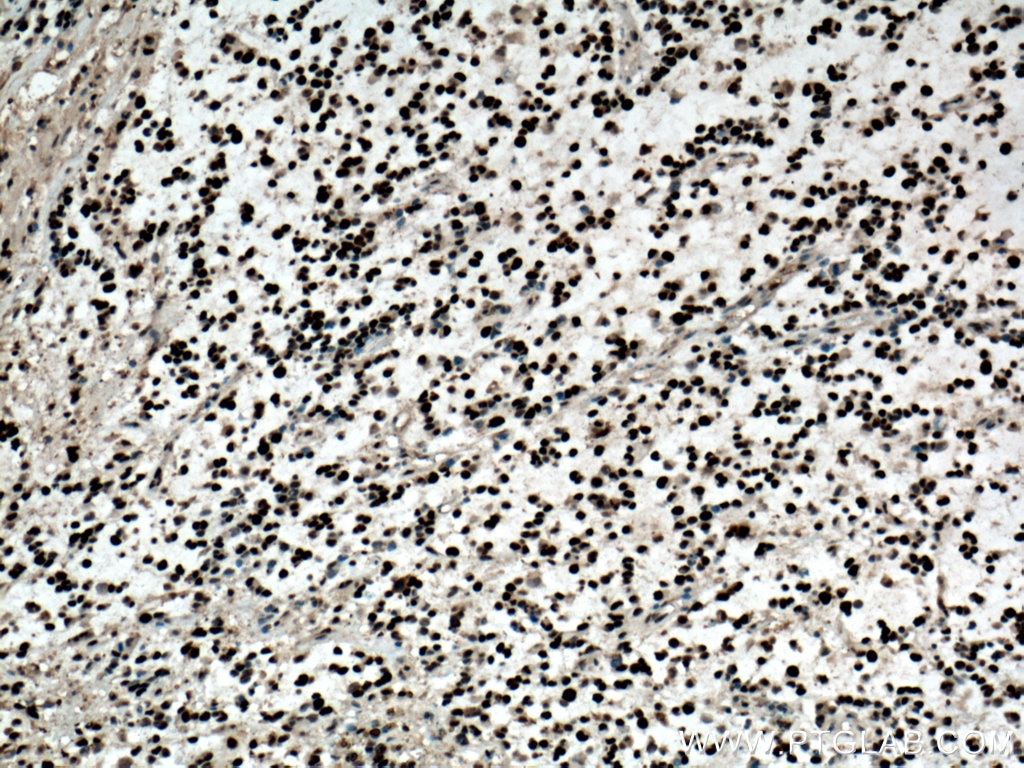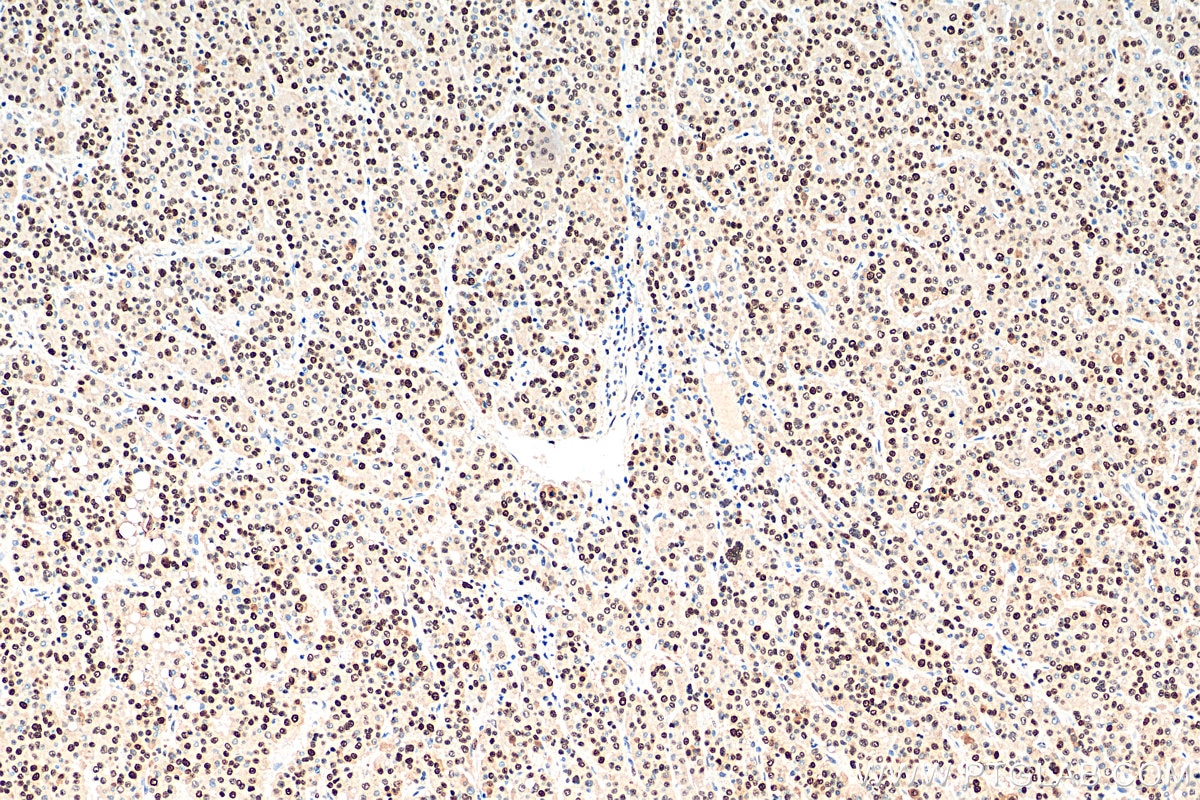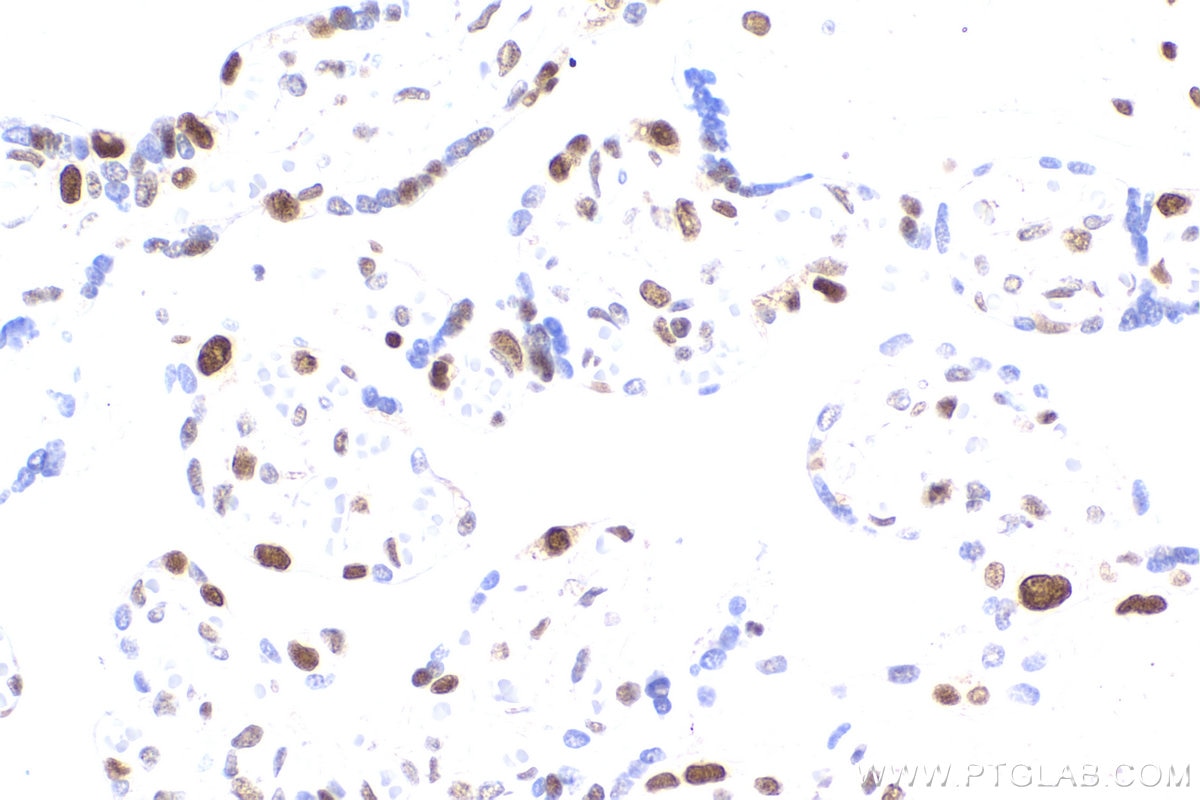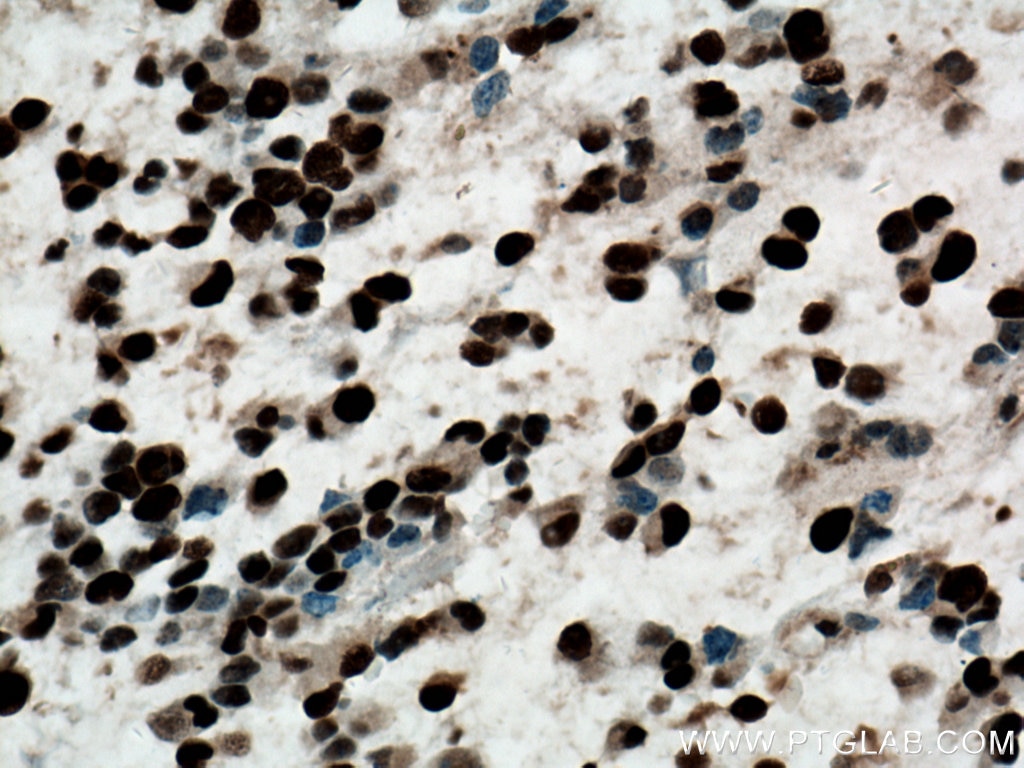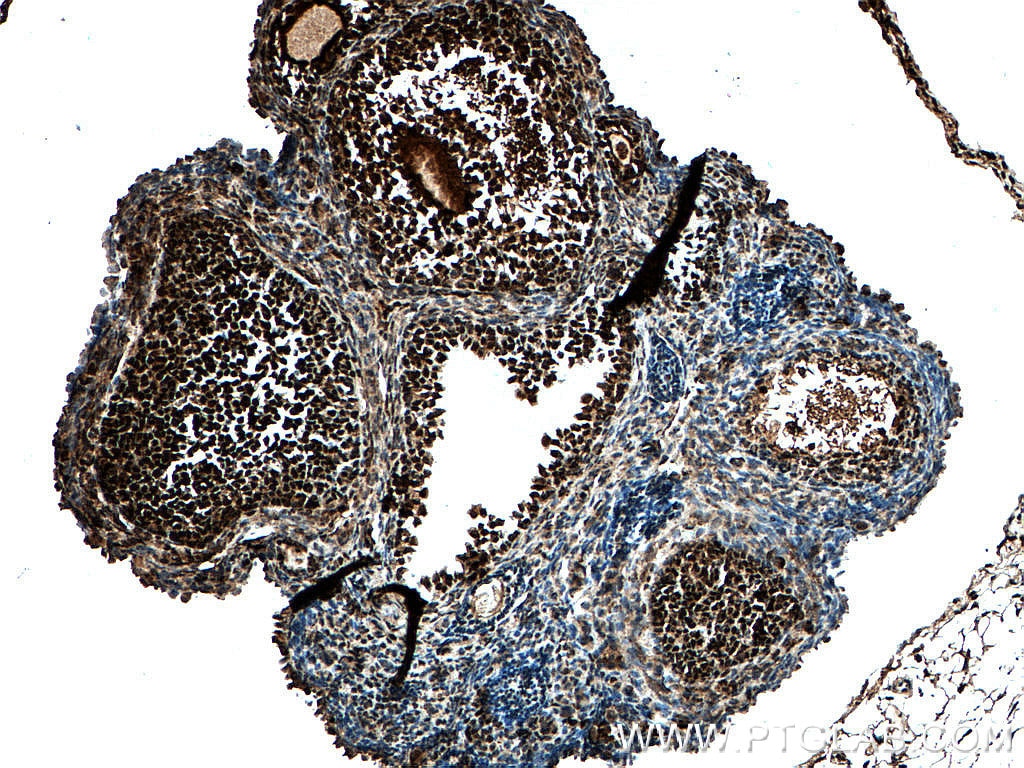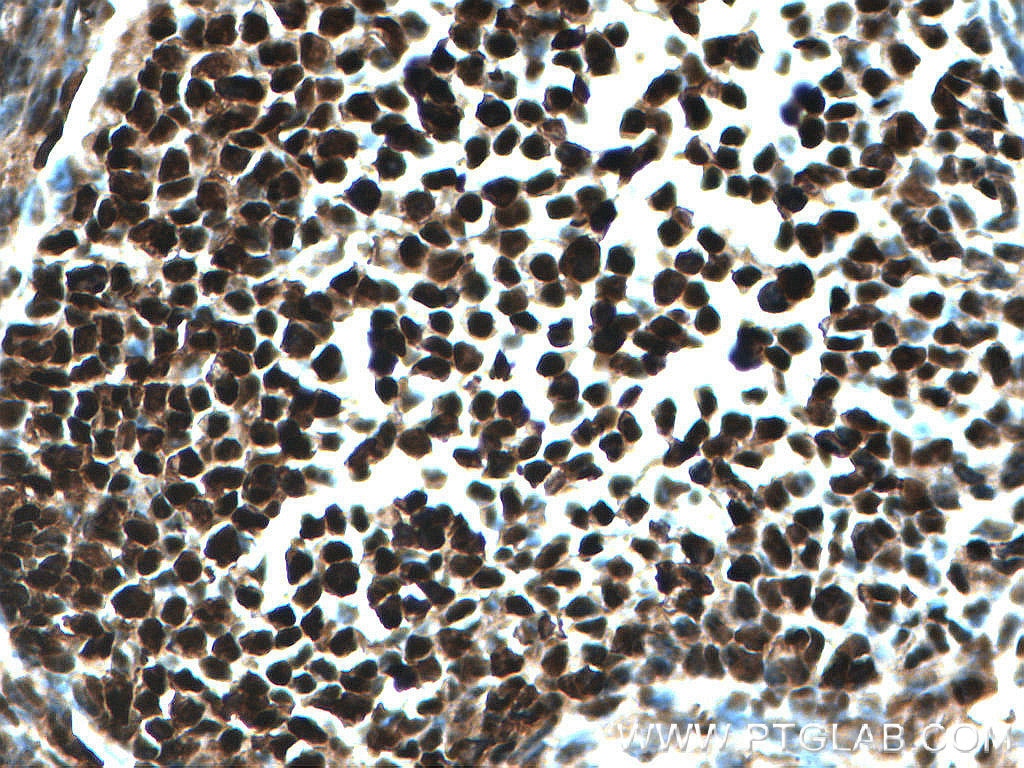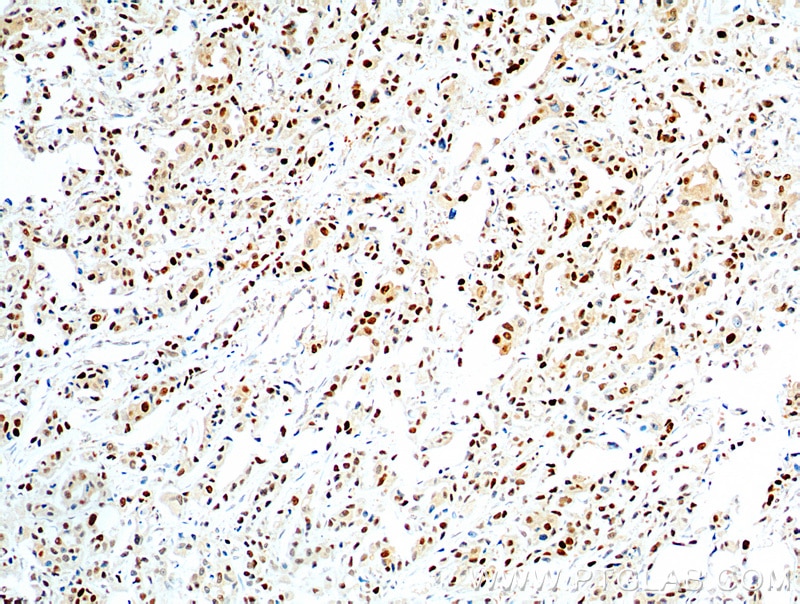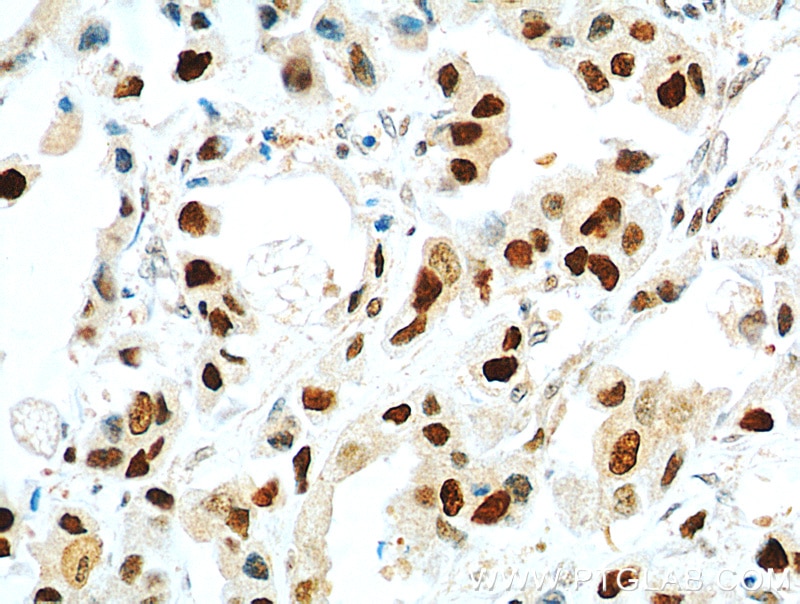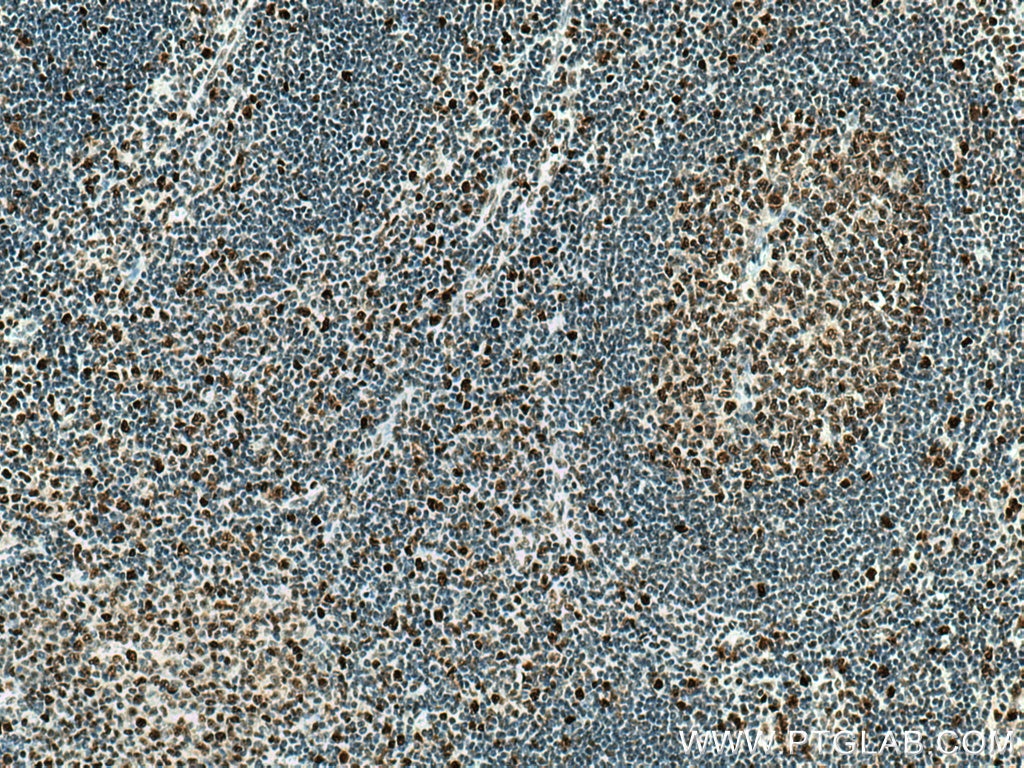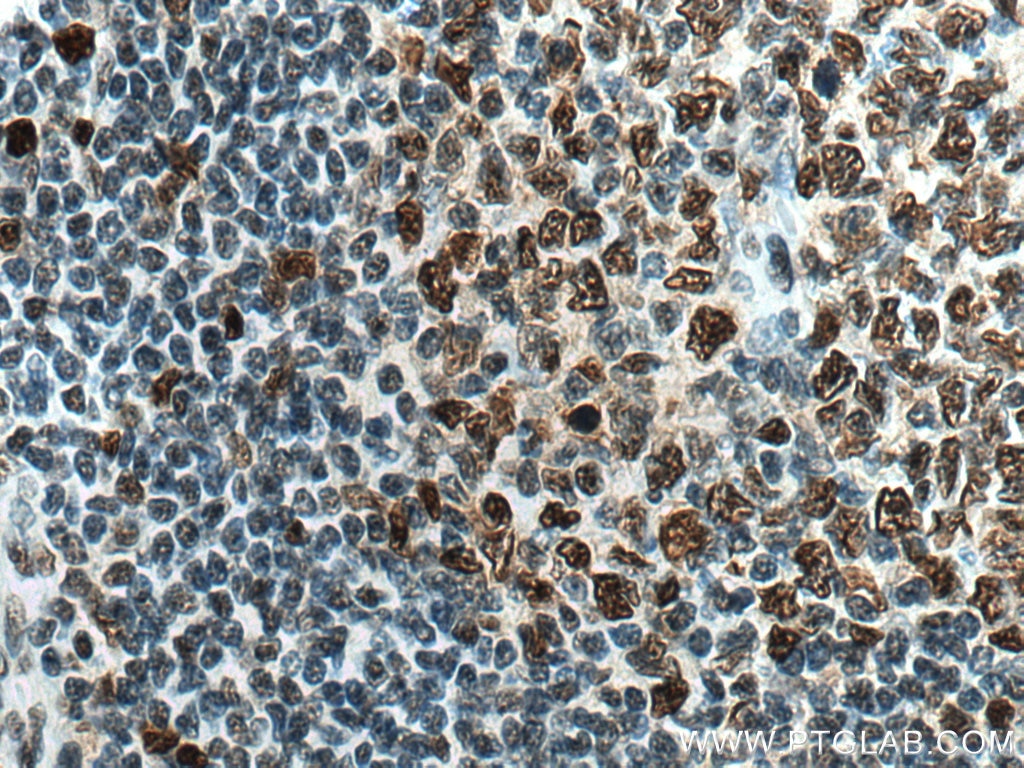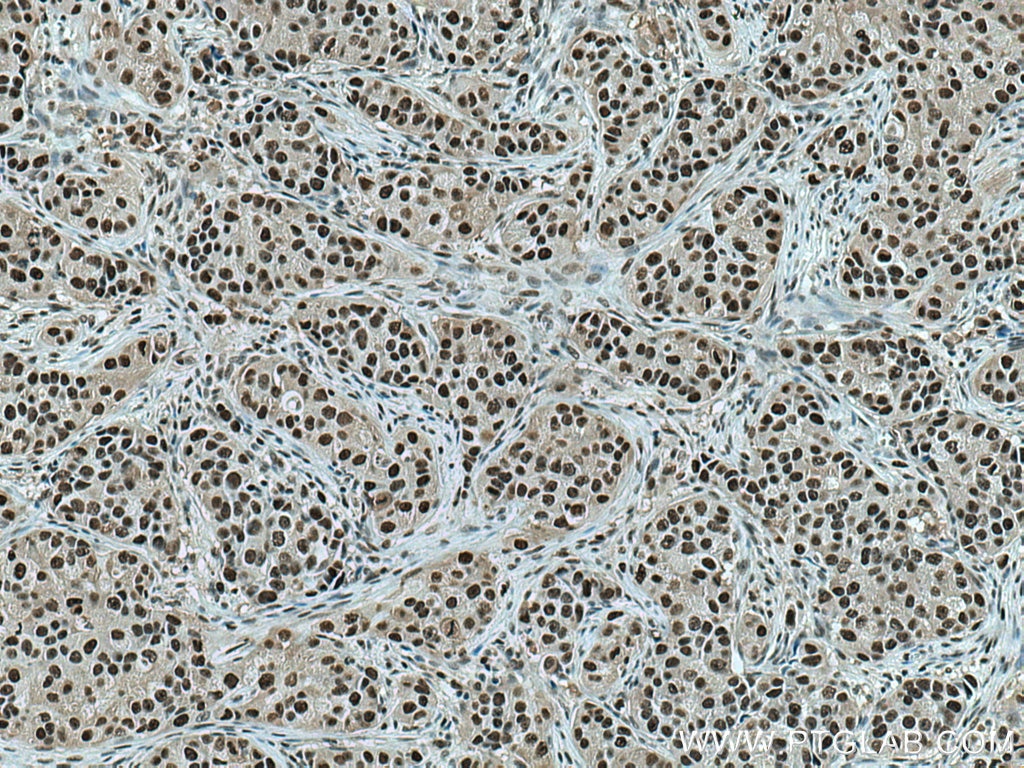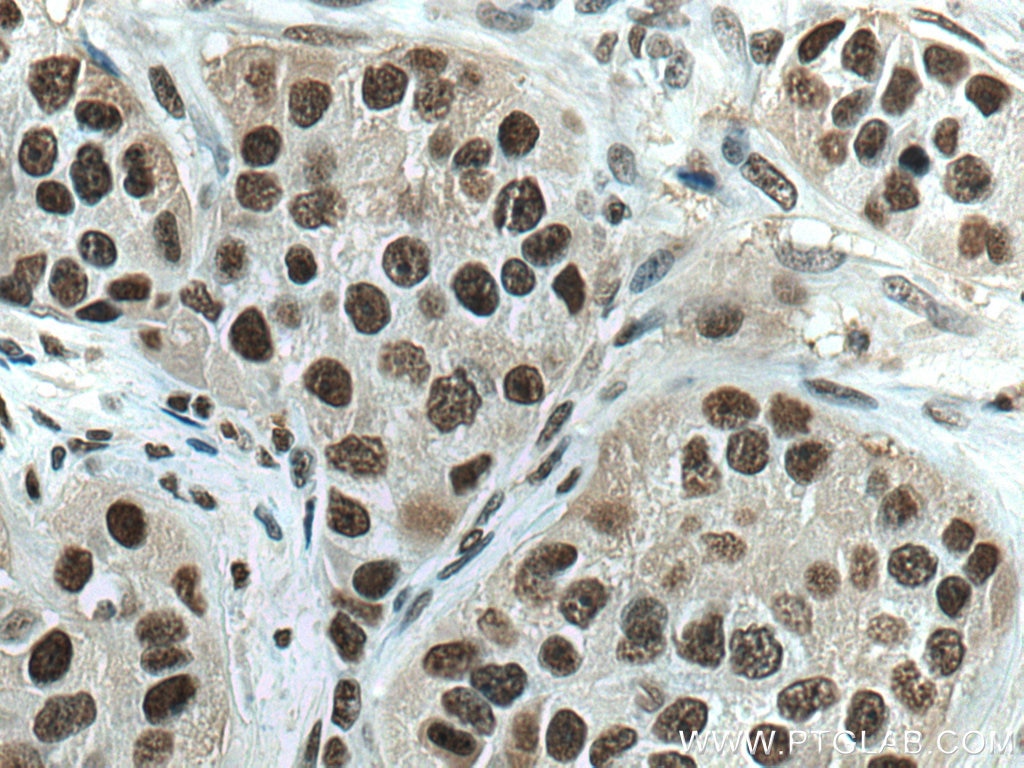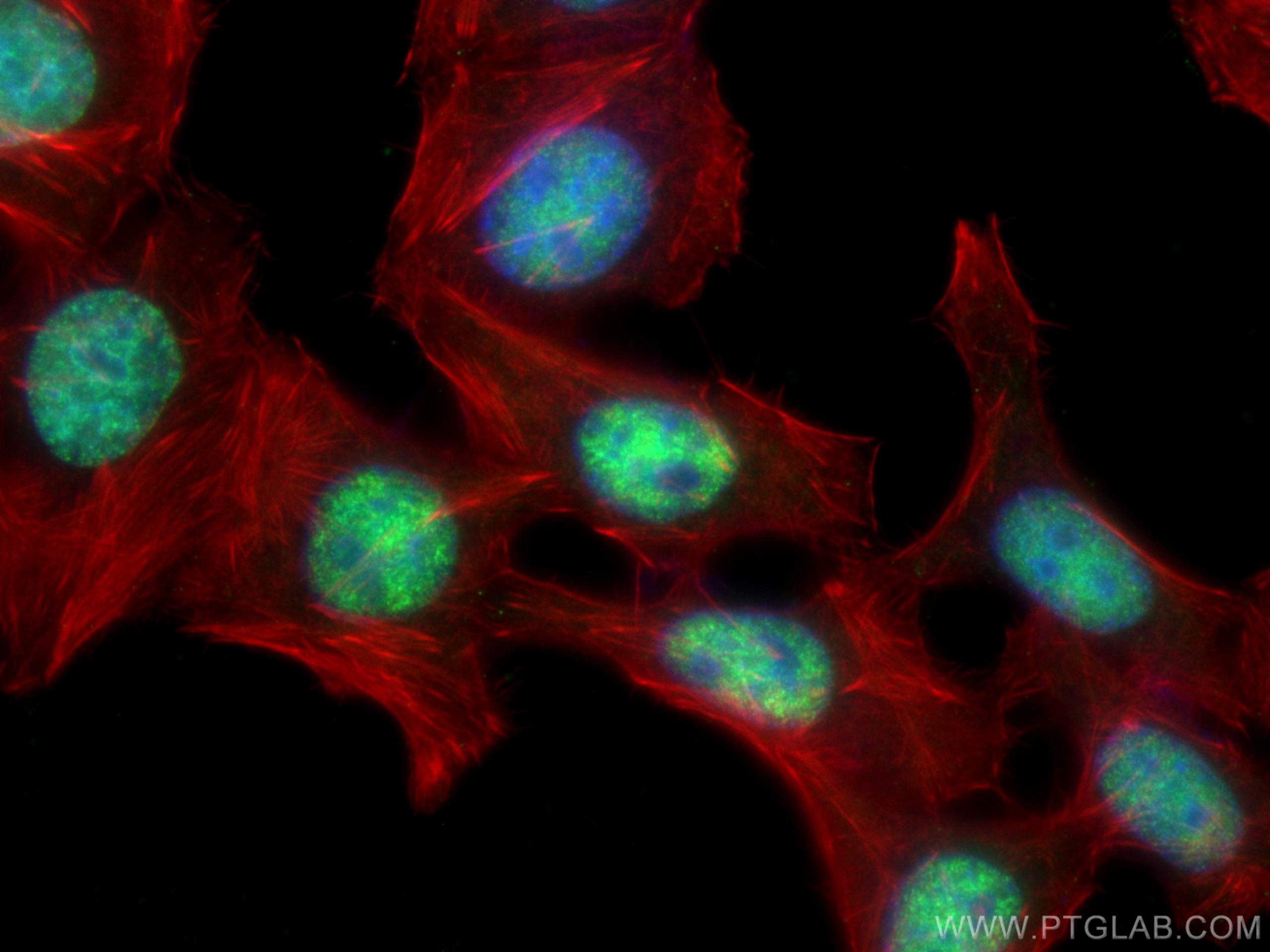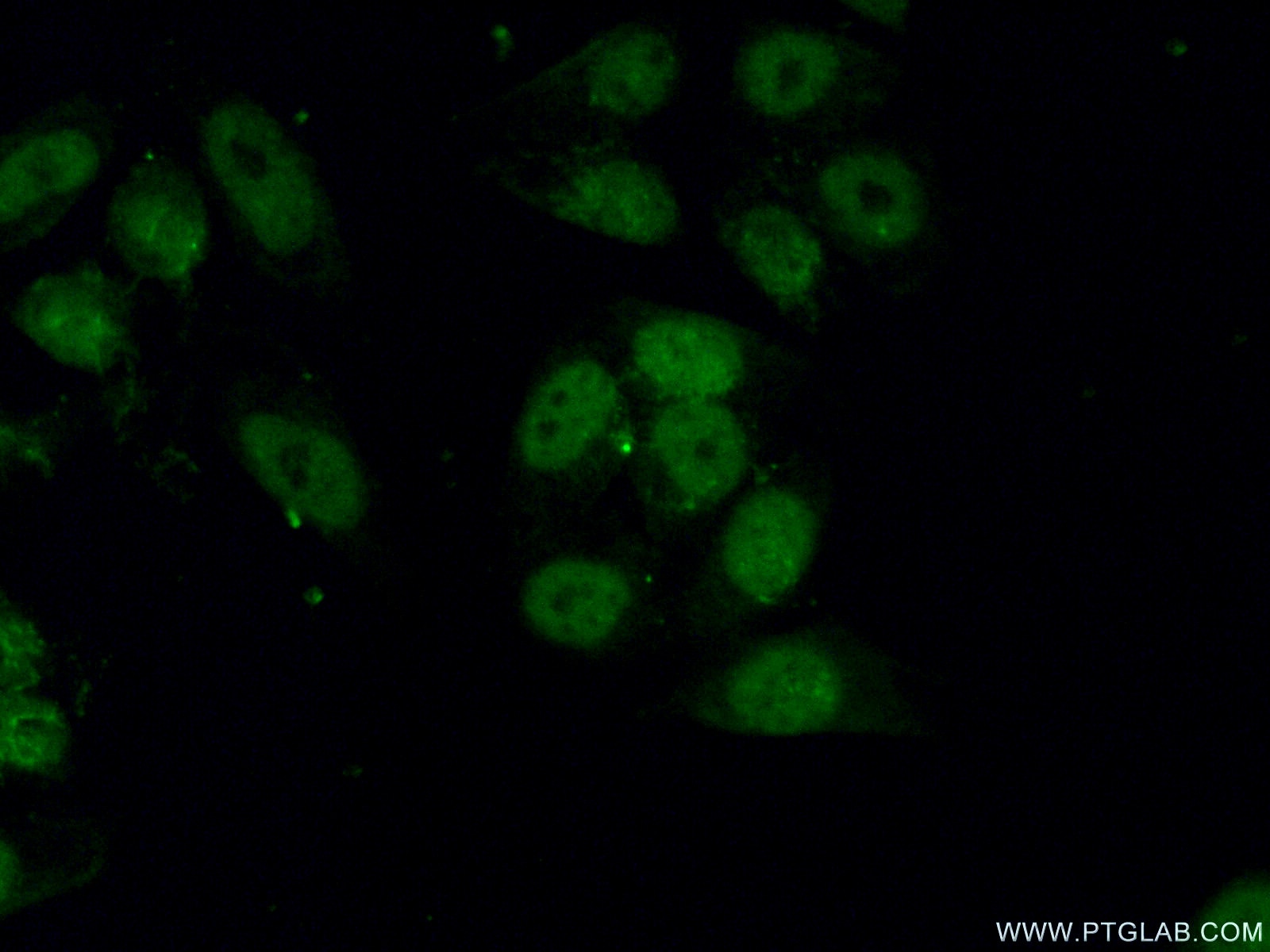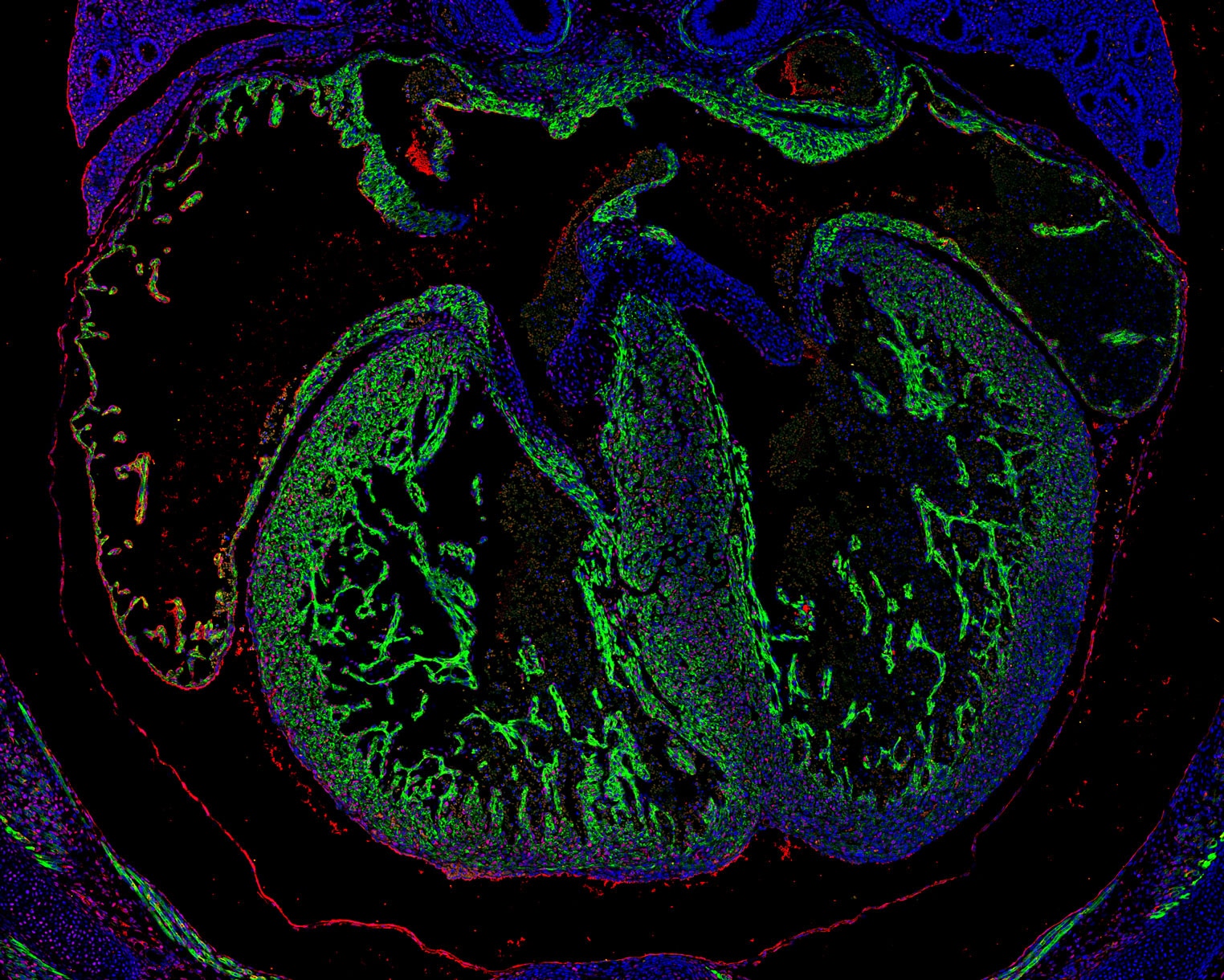- Featured Product
- KD/KO Validated
PCNA Monoklonaler Antikörper
PCNA Monoklonal Antikörper für WB, IHC, IF/ICC, IP, Indirect ELISA
Wirt / Isotyp
Maus / IgG1
Getestete Reaktivität
Hausschwein, human, Maus, Ratte
Anwendung
WB, IHC, IF/ICC, IP, Indirect ELISA
Konjugation
Unkonjugiert
CloneNo.
10D10E11
Kat-Nr. : 60097-1-PBS
Synonyme
Geprüfte Anwendungen
Produktinformation
60097-1-PBS bindet in WB, IHC, IF/ICC, IP, Indirect ELISA PCNA und zeigt Reaktivität mit Hausschwein, human, Maus, Ratten
| Getestete Reaktivität | Hausschwein, human, Maus, Ratte |
| Wirt / Isotyp | Maus / IgG1 |
| Klonalität | Monoklonal |
| Typ | Antikörper |
| Immunogen | PCNA fusion protein Ag7416 |
| Vollständiger Name | proliferating cell nuclear antigen |
| Berechnetes Molekulargewicht | 29 kDa/31 kDa |
| Beobachtetes Molekulargewicht | 36-38 kDa |
| GenBank-Zugangsnummer | BC000491 |
| Gene symbol | PCNA |
| Gene ID (NCBI) | 5111 |
| Konjugation | Unkonjugiert |
| Form | Liquid |
| Reinigungsmethode | Protein-G-Reinigung |
| Lagerungspuffer | PBS only |
| Lagerungsbedingungen | Store at -80°C. 20ul Größen enthalten 0,1% BSA. |
Hintergrundinformationen
Proliferating Cell Nuclear Antigen, commonly known as PCNA, is a protein that acts as a processivity factor for DNA polymerase δ in eukaryotic cells. This protein is an auxiliary protein of DNA polymerase delta and is involved in the control of eukaryotic DNA replication by increasing the polymerase's processibility during elongation of the leading strand. PCNA induces a robust stimulatory effect on the 3'-5' exonuclease and 3'-phosphodiesterase, but not apurinic-apyrimidinic (AP) endonuclease, APEX2 activities. It has to be loaded onto DNA in order to be able to stimulate APEX2. PCNA protein is highly conserved during evolution; the deduced amino acid sequences of rat and human differ by only 4 of 261 amino acids. PCNA has been used as loading control for proliferating cells. The calculated molecular weight of PCNA is 29 kDa, but modified PCNA is 36kDa (PMID: 1358458).
